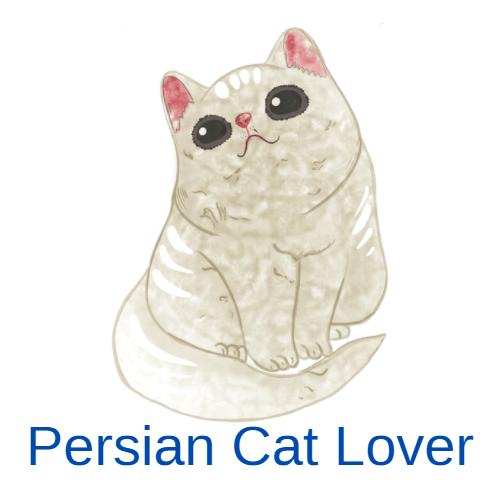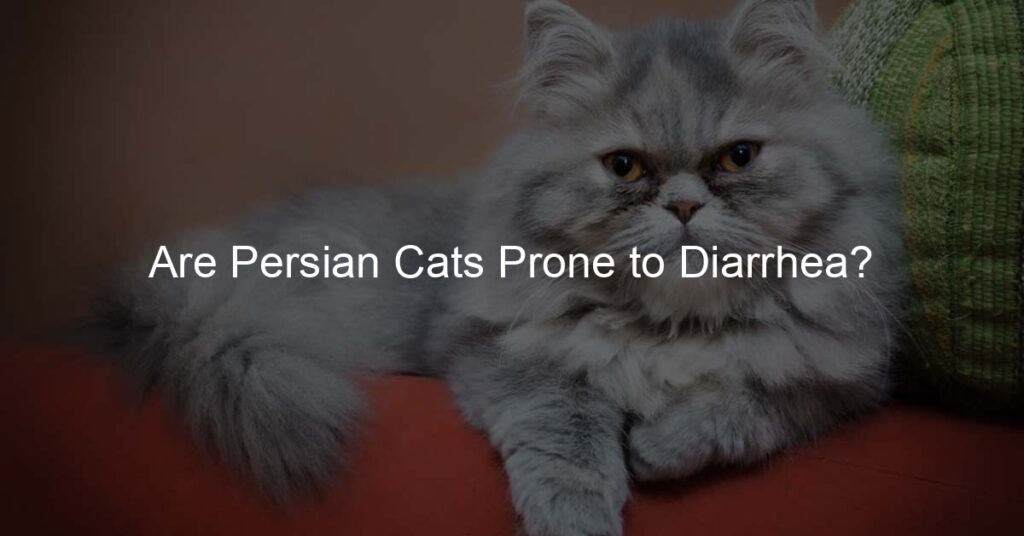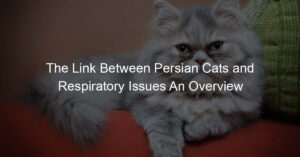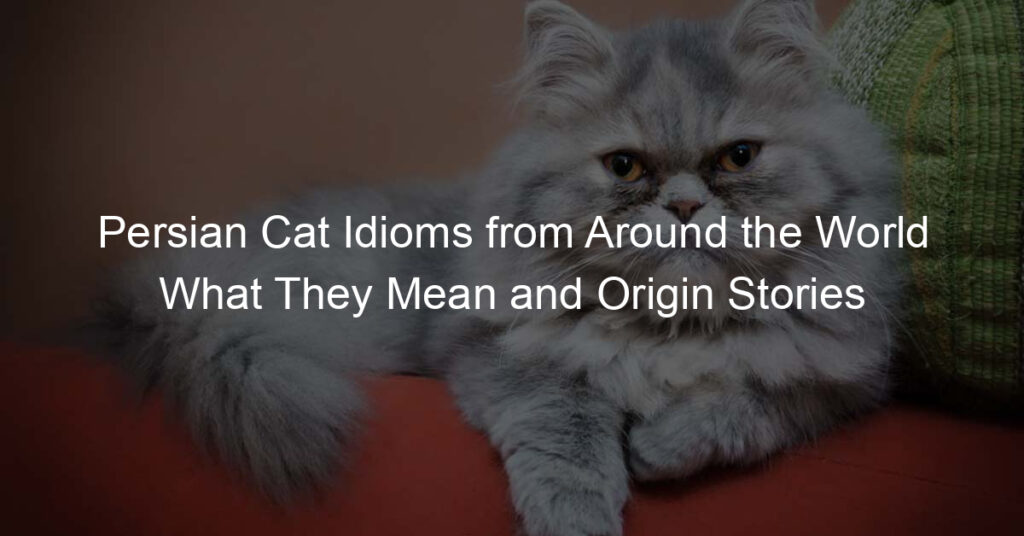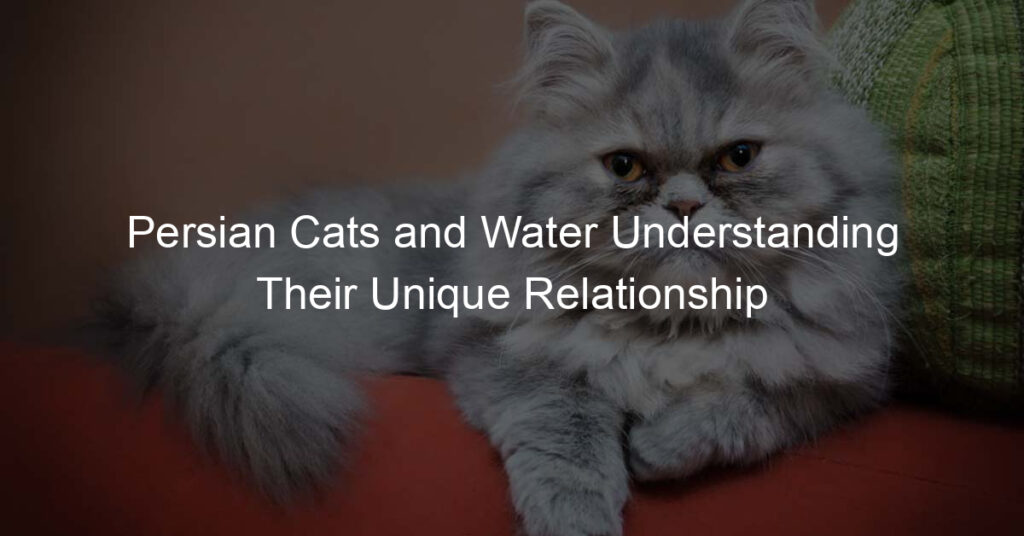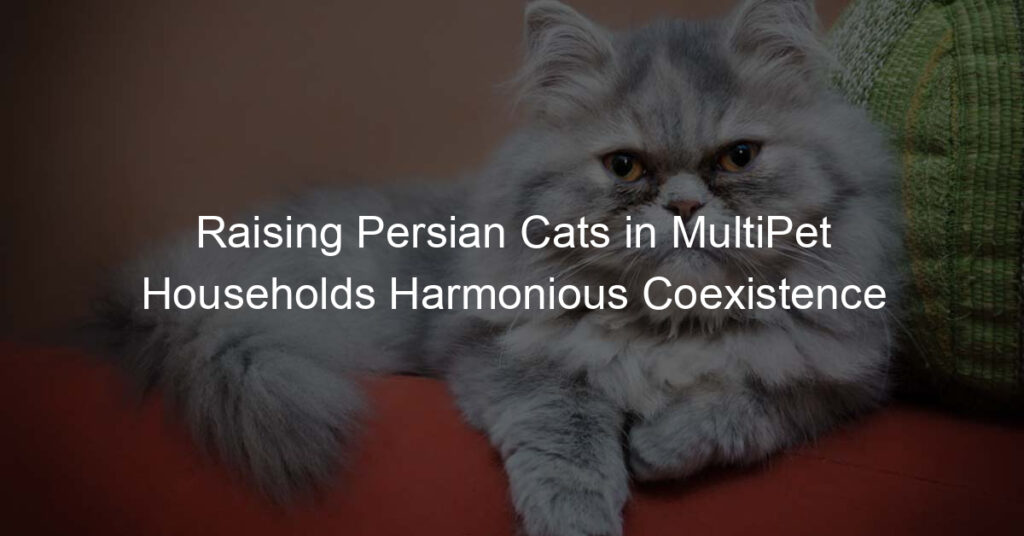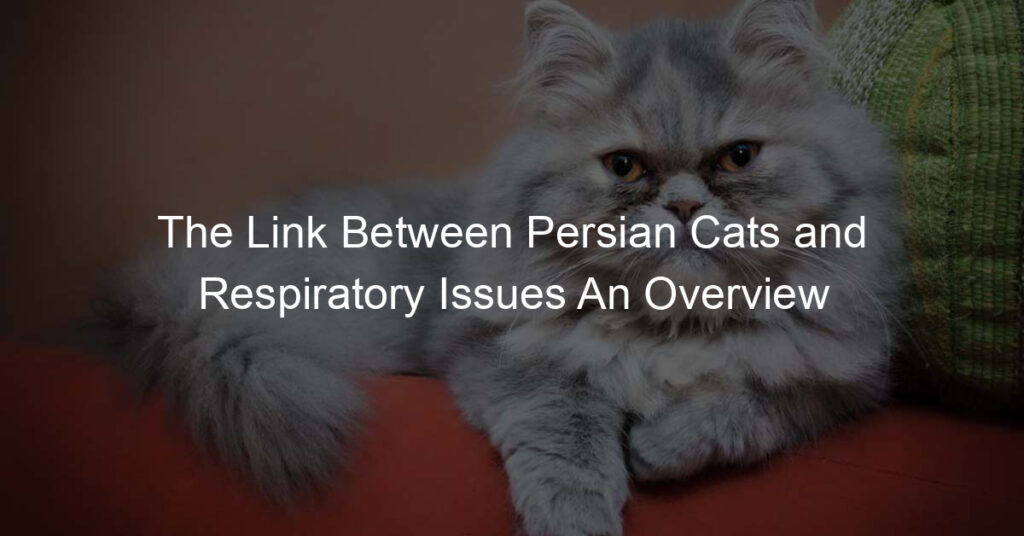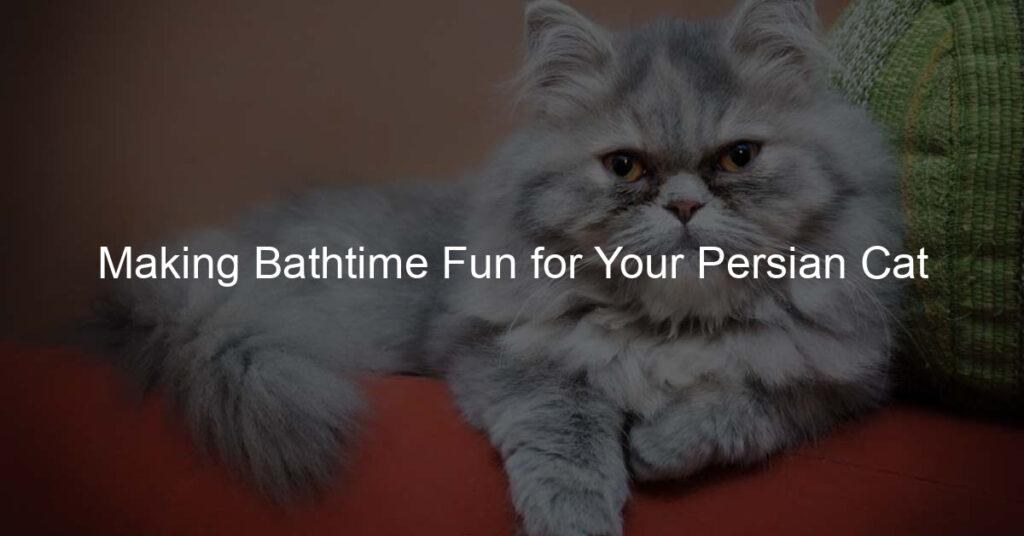Well, that depends on how much Persian cat food they’re eating. If your kitty is overeating of its savory treats, it may be more susceptible to digestive issues like diarrhea.
That being said, it’s important to feed your Persian cat a balanced diet and make sure they get plenty of exercises, so they stay healthy and happy!
So if you want to keep your feline friend from having tummy troubles, then be sure to provide the proper nutrition and activity for them. It might just save them from a few bad bathroom breaks!
Are Persian Cats Prone to Digestive Issues Other Than Diarrhea?
Persian cats may indeed be more prone to digestive issues like diarrhea, but it’s important to note that they can also suffer from other stomach problems as well.
Hairballs are a common issue for all cats, and Persian cats are no exception.
Constipation is another issue that can affect any cat breed, so being mindful of your kitty’s diet and making sure they stay active will help keep them healthy.
In addition, if you suspect there might be something wrong with your pet, then make sure to talk to your vet right away!
Regardless of the problem, early detection and treatment can go a long way in preventing severe health complications.
How Much Exercise Does a Persian Cat Need for Good Health?
Keeping your Persian cat healthy and happy is no different than any other cat breed. They need regular exercise to maintain a good weight and keep their muscles toned.
Exercise can also help reduce stress and improve the overall well-being of your feline friend. But just how much exercise should they get?
According to experts, cats that stay indoors need at least 15 minutes a day of active playtime with their owners or another cat in the household. This can include playing fetch or chasing toys around, but it’s essential to give them enough time to become physically tired before ending the session.
For outdoor cats, ensure they have plenty of space to explore and roam, as this will give them ample opportunity for physical activity. And remember, even cats need to stay hydrated, so always make sure your Persian has access to plenty of clean, fresh water.
Don’t think that just because your Persian is a couch potato, they don’t need exercise. On the contrary, a little bit every day can go a long way in keeping them healthy!
And if you want to spoil your feline friend, maybe you can even treat them to some Persian cat-approved food now and then!
What Are the Signs That My Persian Cat Has an Unhealthy Diet?
If you own a Persian cat, then chances are you’ve heard the rumor that they are prone to diarrhea. It’s not quite as common as some people might think, but it can be an issue if your Persian kitty is eating something that doesn’t agree with its stomach.
Here are some signs to watch out for if you’re concerned about your pet’s diet:
1) Abnormal or loose stool: If your kitty has frequent bouts of diarrhea, it could be because they’re not getting enough fiber in their diet. Make sure to give them plenty of high-fiber foods like vegetables and fruits to help keep their digestive system functioning properly.
2) Bad breath: A foul-smelling odor coming from your cat’s mouth can be an indication that their diet isn’t balanced. Your vet may suggest adding more water or switching to a portion of high-quality food with natural ingredients.
3) Weight loss: If your Persian cat is dropping weight quickly and with no apparent cause, it could be due to the low nutrient content of its food. Be sure to speak to your vet about what type of cat food will provide them with the necessary nutrition.
4) Lethargy: An unbalanced diet can lead to fatigue in cats, so if your furry pal seems lazy, it may be time for a dietary switch-up! Ensure they are getting enough protein and other key nutrients like vitamins and minerals.
If you suspect your Persian cat is experiencing any of these issues due to an unhealthy diet, be sure to speak to your vet as soon as possible.
Is There Anything I Should Avoid Feeding My Persian Cat?
When it comes to feeding a Persian cat, some things should be avoided. Although these cats are generally healthy, they may be prone to diarrhea if the wrong types of food or treats are given.
It’s best to feed your Persian cat high-quality wet and dry food that is specifically formulated for its unique nutritional needs.
Avoid foods with too many fillers and artificial ingredients, as these could contribute to digestive issues like diarrhea.
Treats such as human-grade meats, fruits, vegetables, and whole grains can help provide additional nutrition; just make sure you consult with your veterinarian first!
Is It Possible To Prevent Diarrhea in a Persian Cat by Changing Its Diet and Lifestyle Habits?
The answer is yes! Persian cats may be prone to gastrointestinal issues, but you can minimize their risk with a few simple lifestyle and dietary tweaks. Start by feeding your high-quality cat food that’s designed for their special needs.
Look for food that contains the proper balance of proteins, fats, vitamins, and minerals. Also, consider switching to wet food instead of dry kibble if it doesn’t upset your cat’s stomach.
You should also keep an eye on your cat’s activity levels; Persian cats love lounging around, but regular exercise can help keep its digestion healthy and prevent diarrhea.
Lastly, make sure you clean litter boxes regularly so they don’t become a source of infections or parasites that might cause diarrhea.
You can keep your Persian cat’s tummy happy and diarrhea-free with a few changes. So don’t let a little (or a lot) of diarrhea put a damper on all those cuddles with your furry friend!
